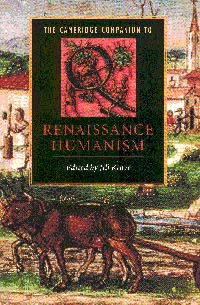Book contents
- Frontmatter
- 1 The origins of humanism
- 2 Classical scholarship
- 3 Humanism in script and print in the fifteenth century
- 4 The humanist reform of Latin and Latin teaching
- 5 Humanist rhetoric and dialectic
- 6 Humanists and the Bible
- 7 Humanism and the origins of modern political thought
- 8 Philologists and philosophers
- 9 Artists and humanists
- 10 Vernacular humanism in the sixteenth century
- 11 The new science and the traditions of humanism
- 12 Humanism and Italian literature
- 13 Humanism and English literature in the fifteenth and sixteenth centuries
- 14 Humanism and seventeenth-century English literature
- A guide to further reading in English
- Biographical index
2 - Classical scholarship
Published online by Cambridge University Press: 28 May 2006
- Frontmatter
- 1 The origins of humanism
- 2 Classical scholarship
- 3 Humanism in script and print in the fifteenth century
- 4 The humanist reform of Latin and Latin teaching
- 5 Humanist rhetoric and dialectic
- 6 Humanists and the Bible
- 7 Humanism and the origins of modern political thought
- 8 Philologists and philosophers
- 9 Artists and humanists
- 10 Vernacular humanism in the sixteenth century
- 11 The new science and the traditions of humanism
- 12 Humanism and Italian literature
- 13 Humanism and English literature in the fifteenth and sixteenth centuries
- 14 Humanism and seventeenth-century English literature
- A guide to further reading in English
- Biographical index
Summary
In 62 BC Cicero defended in court a Greek poet, Archias, whose citizenship had been challenged. The version of his speech that he later circulated expatiates on the service that poets render to the state by conferring immortality on heroes and thereby encouraging public spirit. Even historians, he says (Pro Archia 24), achieve less: Alexander the Great took many on his campaign, and yet, when he came to the tomb of Achilles near Troy, he exclaimed: 'lucky young man, to have had your prowess advertised by Homer!' - and he was right, because without the Iliad the tomb would have closed not only over his body but over his name.
William of Malmesbury, who died about 1143, tells the same story about Alexander. Had he read it in Cicero's speech for Archias? Though the Latin literature of republican and imperial Rome spans over 600 years (from about 200 BC to the early fifth century), not a single autograph survives; and the poems of Virgil, the plays of Terence and Livy's account of the war against Hannibal are unusual in being preserved by manuscripts even as old as the fourth or fifth century, written for collectors not obviously affected by the conversion of the empire to Christianity. After that, the historical record dwindles until the end of the eighth century, when Charlemagne created a successor to the Roman empire in the west and ruled it from the lower Rhine. In ways hard to trace, monastic and royal libraries then began to acquire old manuscripts, not least of pagan texts, and to make copies, usually in a new script that modern printers have inherited with little change.
- Type
- Chapter
- Information
- The Cambridge Companion to Renaissance Humanism , pp. 20 - 46Publisher: Cambridge University PressPrint publication year: 1996
- 14
- Cited by

